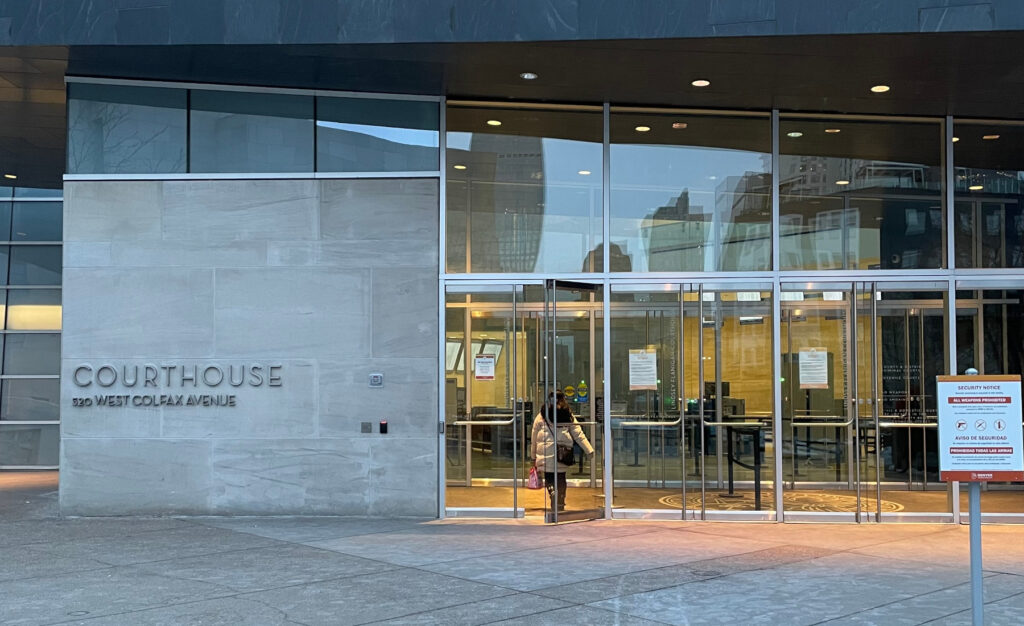By Jeffrey A. Roberts
CFOIC Executive Director
A proposed chief justice directive should be revised to allow the livestreaming of criminal trials and evidentiary hearings in Colorado courtrooms and permit virtual access to civil proceedings, the Colorado Freedom of Information Coalition and the state’s news associations urged the Colorado Supreme Court.
CFOIC president Steve Zansberg, a media and First Amendment lawyer, submitted comments for CFOIC, the Colorado Press Association and the Colorado Broadcasters Association on Tuesday in response to draft rules posted by the judicial branch earlier this month.

“There should be a strong presumption in favor of livestreaming of judicial proceedings that are open to the public,” Zansberg wrote.
But as proposed, the rules would not permit the livestreaming of evidentiary hearings and trials in criminal cases, which “would be a radical departure from the status quo in which numerous criminal trials have been livestreamed, and, to our knowledge, no court has heretofore encountered any difficulty or problem as a result thereof.”
Zansberg noted that some criminal court proceedings, including the closely watched 2015 trial of mass-killer James Holmes, were made available to the public via video even before the COVID-19 pandemic forced widespread use of online technology. “That trial, which spanned almost seven months, included 256 witnesses. No one has ever raised any concerns about the fairness of that trial, a lack of decorum, or the contamination of any sequestered witness as a result of exposure to the court’s live Webex streaming.”
Among high-profile criminal trials conducted over Webex during the pandemic: a woman convicted of the attempted kidnapping of her son after succumbing to QAnon conspiracy theories; a father convicted of murdering his son; a teenager convicted in the fatal attack on STEM School Highlands Ranch; and a man convicted of killing his wife.
It is now up to each judge to decide whether proceedings are broadcast to the public using Webex or another videoconferencing platform. Many judges use the technology, but some do not and not every courtroom is equipped for virtual justice.
The draft chief justice directive lists several concerns about livestreaming court proceedings: the sequestration of witnesses; the need to protect victims, especially those who have been sexually assaulted or subject to domestic violence; and the need to protect defendants from retaliation.
Zansberg noted that judges for decades have had to weigh matters such as sequestration when deciding whether to authorize cameras in the courtroom. “Our criminal justice system generally presumes that all trial participants will abide by judicial orders and admonitions (e.g., jurors and sequestered witnesses are to avoid all press coverage of the case), and any suspected violations of such orders are to be addressed by the court,” he wrote.
Arguing for a policy that would promote the livestreaming of civil — in addition to criminal — court proceedings, the comments submitted to the Supreme Court say the public often has a profound interest in “class actions for violation of consumer protection laws, cases seeking damages for injuries caused by dangerous or unsafe consumer products, or claims asserted against those acting ‘under color of state law’ in violation of constitutionally-guaranteed rights.”
Zansberg noted one ongoing civil case of high public interest: A defamation lawsuit filed by the former security director of Dominion Voting Systems against former President Donald Trump’s campaign, lawyers Rudy Giuliani and Sidney Powell and others.
“Because the public’s interest in observing how this state’s judicial branch handles such claims, and myriad others, is of as much significance (and often of greater significance) than that associated with ‘garden variety’ misdemeanor or felony cases, the Court should not limit the reach of the CJD to apply only to criminal court proceedings.”
A measure under consideration in the state legislature also addresses remote public access to criminal court proceedings. House Bill 23-1182 is scheduled for a hearing in the House Judiciary Committee on March 28.
Follow the Colorado Freedom of Information Coalition on Twitter @CoFOIC. Like CFOIC’s Facebook page. Do you appreciate the information and resources provided by CFOIC? Please consider making a tax-deductible donation.




